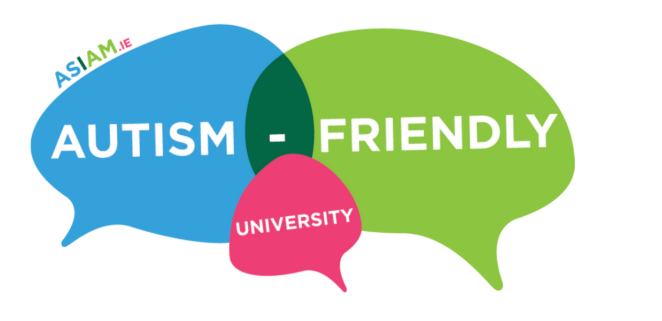This article focuses on the importance of healthy habits for wellbeing. The article provides useful tips and information regarding physical wellbeing, diet, responsible alcohol use, exercise and sleep. It also details the services available at ATU Sligo.
Full articleInformation and Advice
2 What happens if I have practice placements on my course?
The number of students with disabilities studying professional courses has increased significantly over the last number of years and to ensure students with disabilities are adequately supported they must be registered with Disability Service and request a PLENS (Professional Learning Education Needs Assessment).
Full article3 Studying remotely in times of social distancing
The article provides practical assistance with studying during and after the COVID-19 pandemic and the resulting lockdown. It covers mental health and well-being considerations as well as guidance in navigating university systems, services and people you can liaise with. We also offer guidance on prioritising your work, taking into account a healthy work-life balance.
Full article4 Academic Writing and Math Support Centres
At ATU Sligo all students have access to both Academic Writing and Math Support Services
Full article5 What is university really like?
It’s hard to know what university is like until you get there, and all universities are different. In some ways it’s easier to describe what university isn’t! Well, everyone says that it is not like school or college, or work, or home. So, what IS university really like? We aim to give you a realistic view, based on things students told us they wish they had known.
Full article6 Fund for Students with Disabilities
7 What is the Learning Education Needs Assessment?
The Learning Education Needs Assessment (LENS) is an important part of the process of getting support at university. This activity will explain what the LENS is, how it works and how to prepare for your appointment.
Full article8 Choosing a course and university
This article will help you decide what to study, and at which university. We provide practical tips on how to compare universities, how to prepare for open days and who to talk to at these events.
Full article9 Autism Friendly Campus Initiative
ATU Sligo is on a journey to become an autism-friendly campus through a collaboration between ATU Sligo, AsIAm and Specialisterne Ireland (a specialist consultancy that recruits and supports autistic people). But what does that mean?

Full article
10 Applying to university
Find out more about applying to University generally, and about our university’s admission process.
Full article11 Choosing your accommodation
This article introduces typical accommodation options available and provides some tips for making the right choice for you.
Full article12 Telling people at university about your autism
This article is around the issues of telling people that you are autistic, also known as ‘disclosure’ or ‘declaring a disability’.
Full article13 How to manage exams
This section looks at how to manage exams. This includes information about what to expect, how to prepare for an exam and practical tips to help you perform well.
Full article14 Talking about your autism
By talking about your autism and advocating for yourself, you make an important step towards feeling comfortable with others. This activity introduces the advantages of being open about your autism, and give some practical tips.
Full article15 Meeting people at university
Many students find meeting new people and making friends amongst the most exciting but also most difficult aspects of starting university. This activity should help you to get started.
Full article16 What are lectures really like?
Lectures at university can be quite different from lessons at school and college, particularly when you are taught in a big group. This activity will help you to make the most out of lectures.
Full article17 What is group work really like?
Working in a group with other students is part and parcel of university study. Quite a few people worry about it, and some have real problems with it. This activity looks at the main issues people have with group work and gives you some practical tips for your own study.
Full article18 Clubs and Societies
Take a quick look at what life outside study is like at IT Sligo. With over 70 Clubs and Societies there’s something for everyone!
Full article19 What are seminars really like?
Seminars provide an opportunity to explore topics by discussion, and to identify and resolve any questions that may arise after lectures. This section will look at how to prepare for a seminar, and what to expect from one.
Full article20 What are computer lab sessions really like?
On technical courses such as Computing, Forensics, Games Development or Creative Technology you will spend a lot of tutorial time in a computer lab. Whilst you’ll often focus on what you’re coding or designing, you may also take part in discussions and group tasks, like in a traditional seminar. Read this article to learn more about the nature of lab sessions.
Full article21 Managing conflict
Different people have different expectations and styles of working or living together. Sometimes that can lead to conflict. This article will help you recognise causes of conflict and proposes strategies to resolve it.
Full article22 What are assessments, and how do you survive them?
This section will look at different forms of assessment. It will give you some practical ideas on how to prepare for them, and how to get the most out of them.
Full article23 How to reduce anxiety and stress
It is normal to feel anxious when starting something new, like a university course, and everyone feels stress at difficult times of the year like exam periods or when there is a lot happening in their lives. It can sometimes be hard to relax. This activity is about helping you to manage these feelings and includes tips from other autistic students.
Full article
